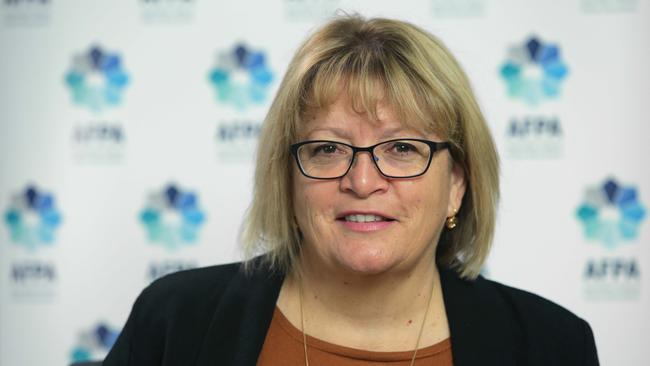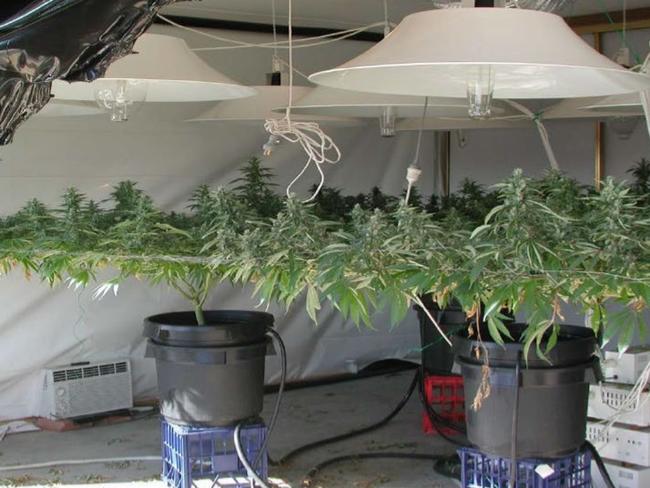Cannabis legalisation undermines work of Strike Force Raptor: police association
The legalisation of cannabis in the ACT ‘heightens’ the risk of drug driving on NSW roads and undermines the work of the state’s anti-gangs squad, according to the federal police association.

Canberra Star
Don't miss out on the headlines from Canberra Star. Followed categories will be added to My News.
The risk of drug driving on NSW roads has been “heightened” following the decision to legalise cannabis for personal use in the nation’s capital, according to the Australian Federal Police Association.
This was among the litany of concerns raised by Association president Angela Smith over ACT Parliament’s passage of new laws yesterday allowing adults to possess up to 50 grams of dry cannabis and grow two plants each.

Ms Smith also echoed fears some of the good work Strike Force Raptor does, to prevent bikies getting drugs into Sydney, could go up in a plume of smoke.
“The Government (capped) the number of plants per household but that’s not stopping a criminal syndicate from sending 10 people to Canberra to rent houses and each household grow four plants and sending that to Sydney,” she said.
“We know the Hume Hwy is already a corridor for sending drugs back and forth.
“It makes the job of Strike Force Raptor and NSW police just that little bit harder … and starts to undo the good work that those (officers) are trying to do.”
In a submission to a parliamentary inquiry, ACT chief police officer Ray Johnson said the new laws don’t “positively address the risk of road trauma in our community as a result of impaired driving”.
While driving under the influence of marijuana remains illegal, Mr Johnson pointed to a US drug trafficking report which found that after cannabis was legalised, fatal crashes where the operator had cannabis in their system doubled despite total fatal crashes decreasing over the same period.
Ms Smith the “porous” border between the two states could increase drug driving in areas of NSW just a “stone’s throw” from the capital such as Queanbeyan, a 20 minute drive.
“Because of the ACT drivers who move across the border every day (such as) people who work in Queanbeyan, Yass and Cooma … the risk of drug driving has now been heightened,” Ms Smith said.
“There’s still a zero tolerance to drug driving but people are going to argue: “I’m allowed to smoke cannabis now in the ACT and I didn’t think I was affected.”

The problem is drivers may still have traces of the drug in their system even days after they light up and there is no measure of inebriation or impairment like there is with drink driving.
Drug tests are limited to a positive or negative result.
NRMA spokesman Peter Khoury said more work needed to be done globally to gauge a drivers’ capacity to drive rather than just testing for the mere presence of the drug in their system.
“There’s a lot of work that needs to be done in this space, we’re not as advanced as we are with drink driving and we need to be,” Mr Khoury said.
He said people needed to be reminded it is illegal to drive under the influence of cannabis and the drug stays in the system longer than others.
“If that is not communicated to the public extensively, it exposes a risk that people are going to consume the drug, get in the car and think they’re OK to drive when in actual fact they’re not,” he said.
“So there is a risk that if the education campaign is not effective and comprehensive you will see an increase in people caught drug driving.”

The ACT Government has committed to a public information campaign before the laws come into effect on January 31.
Ms Smith also shared police concerns the laws could create a bigger workload for cops and remove access to options for diverting people away from the criminal justice system.
People caught with small amounts of cannabis can now face up to two years in jail and hefty fines under Commonwealth law, which overrides territory legislation.
An ACT Government spokesman said the new laws do not allow the commercial, or large scale, cultivation of cannabis plants.
It will continue to be illegal to sell, share or gift cannabis or drive under the influence of cannabis.
“There is no evidence to suggest that these reforms will promote the trafficking of cannabis to other jurisdictions,” he said.
“The ACT Government will continue to collaborate with ACT Policing on addressing the road safety risks associated with drug driving and will continue to monitor developments in this area and consider national and international developments and evolving strategies to manage the road safety risks posed by impaired driving.”

The changes would reduce the “administrative burden” through the prosecution of individuals in possession of an amount of cannabis for personal use.
“This will divert individuals away from the justice system and help our police force to target resources in other areas,” he said.
A $33.9 million investment would pay for 69 more ACT Policing operational and support staff.
ACT Labor backbencher Michael Pettersson, who introduced the bill, said legalising cannabis for personal use was an important step in the drug law reform campaign.
IN OTHER NEWS
He said a total of 11 US states as well as Canada, South Africa and Uruguay have legalised cannabis, while New Zealand is expected to hold a referendum next year on the issue.
“The ACT joins these progressive parts of the world in recognising the benefits brought by a harm minimisation approach and begins a new chapter in drug law reform in Australia,” Mr Pettersson said.
“I don’t think anyone should have their life ruined with a criminal conviction for possessing small amounts of cannabis.”
